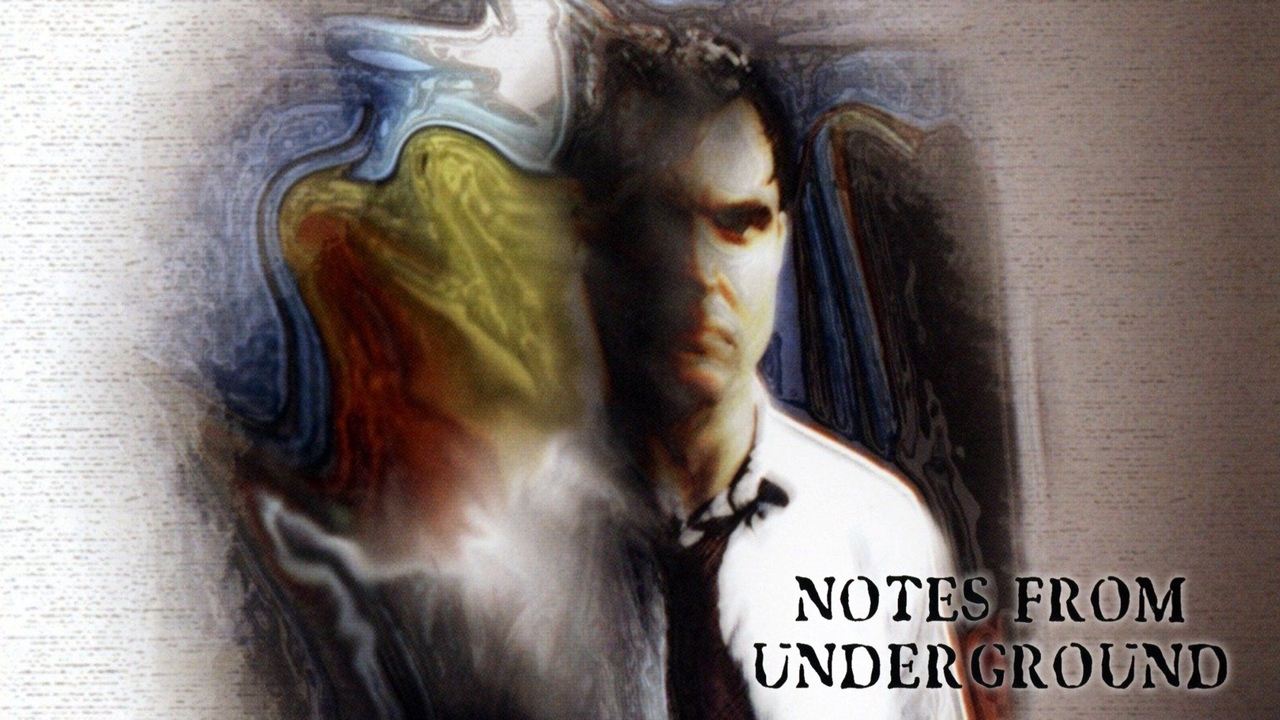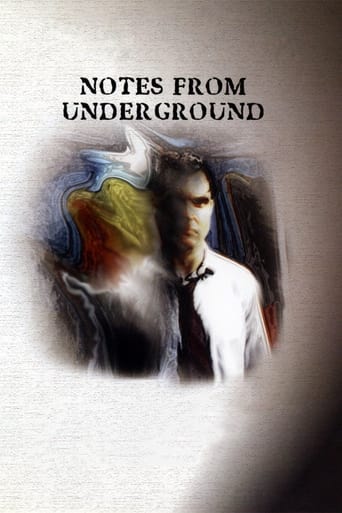


This Movie Can Only Be Described With One Word.
... View MoreIt's the kind of movie you'll want to see a second time with someone who hasn't seen it yet, to remember what it was like to watch it for the first time.
... View MoreNot sure how, but this is easily one of the best movies all summer. Multiple levels of funny, never takes itself seriously, super colorful, and creative.
... View MoreThis film is so real. It treats its characters with so much care and sensitivity.
... View MoreI loved this movie. It is dark, but well acted and I thought quite hilarious (in a life isn't always so great--I wish I could do that kind of way). Henry Czerny possesses such an intensity, "victim" portrayal and convincing self-hatred; it is not difficult to understand why he acts as he does (even though the past wrongs done to him are vague).Anyone who has experienced alienation from a group or hating who they are/what they were doing but couldn't stop the compulsion to cease their behavior, will be able to relate and appreciate the dark humor of this film. I caught it on IFC years ago by accident and my sister and I were both so unexpectedly drawn to the film we could not turn the channel!
... View MoreFor anyone who has read Dostoevsky's novel upon which this film is based, they will be pleasantly surprised to find that Gary Walkow has done a superb job of adapting it to the screen and placing the story in a modern context. Of course, those who haven't read the book will not be disappointed--it stands on its own as a relentless critique of (post)modernity and an examination of forms of all-inscribing social control that permeate one human being's alienated existence. The Underground Man (played brilliantly by Henry Czerny) is, in his own words, "a sick man". In every interaction he sees only the potential to dominate or be dominated; human relations for him are a disease. He is spiteful, frightened, and ashamed of his condition and his perceived inability to change. In order to mitigate the sting of such painfully acute self-awareness/self-consciousness, the Underground Man creates a video diary, in which he records his "confessions" about his interactions with others. These "confessions", while "sincere" expressions of self-loathing and a tortuous desire to change, end up being ultimately dishonest--he cannot even finish some entries because of his awareness that confessions for an unseen "audience" provide him with nothing but shallow comfort and artificial relief.In the film we see the Underground Man fantasize about becoming the strong, desirable, upright person he wishes to become, only to later criticize these fantasies and his reliance upon the very constructs or images of "strong", "desirable", and "upright" he so despises. It is the perceived irreducibility of this cycle that causes him to feel ashamed of his helpless condition. However, he is also plagued by guilt: somehow he sees within himself the ability to change. His intimate knowledge of the reducibility of "consciousness" forces him to acknowledge that man remains, in the words of Sartre, "condemned to freedom."Again, this film marvelously realizes Dostoevsky's vision in its portrayal of the Underground Man. Sheryl Lee's talent in the role of Liza, the prostitute, is highlighted as well. Jon Favreau, in a rare pre-"Swingers" performance, plays Zirkov, the Underground Man's more successful college acquaintance. Seth Green also appears in this early indie film.This film (and the book, of course) come highly recommended, with 10 stars. One's perception of the world and of interactions with others cannot possibly be left unaffected by Walkow's brilliant adaptation and Czerny's performance.
... View MoreDo not walk, run to the video store and rent this movie. Whoever had the idea and courage to bring this vision to screen should have won big awards and big bucks. Special thanks to Sheryl Lee for a great performance.This film portrays a side of humanity that is never explored by Hollywood because it doesn't make you feel good. Gary Walkow has directed and film for adults that offers a kind of redemption that comes from looking at hard truths.He's either nuts to create such a movie in the middle of an industry that is busy turning out mindless fare for teen age boys or he's courageous to put out a film where good actors create a mirror that reveals the stain on our modern souls.Look at the United States, we're becoming a nation of overweight dim wits from a steady diet of junk food and junk movies. Where are the writers and performers working to imagine ourselves into a better future, a stronger vision of who we are?A handful of them created this film; honor their courage by viewing it.
... View MoreThis is a VERY good movie, a surprisingly well-done adaptation and modernization of Fyodor Dostoevsky's novella, "Notes From Underground," where the action is transplanted from 19th century Russia to the Los Angeles of today. Now, this book happens to be one of my all-time favorites so I was very concerned that the movie would be a kind of hip desecration: "How can you separate this story from its roots in the squalor and misery of St. Petersburg and plop it down in La-La land without removing its guts?" I thought. Well, the film somehow manages to do it: watching it, the setting seemed to make perfect sense, as what becomes emphasized is the hero's inability to fit in with the gorgeous and glib Southern California society, and the consequent rage and self-consciousness he feels because of it. This picks up on one strand in Dostoevsky's book, but because of the new setting, enlarges upon it and gives it a new focus.Of course, because of the nature of movies, other aspects of the book had to be shortened or else removed entirely, particularly the extended philosophical and existential monologues the hero spins out in his "notes" (wonderfully converted in the film from a diary format, to a videotaped "confession" - this is perhaps the film's best conceit: once you think about it, it's the obvious solution, but no less inventive for it). The film would have been stronger, and more true to its source, if these videotaped scenes included a bit more philosophical elaboration by the narrator on his motives - twisted though his rationalizations are - because then his actions might become slightly more explicable, particularly to those who haven't read the book.Actually, that brings up an interesting point: can you enjoy, or at least appreciate, this film without having read the book? I'm a little bit too close to the source to say for certain, but my guess would be no. I don't think the film truly does enough to stand on its own, to stake out its own ground which would make sense to an audience unfamiliar with the conceits of the book. This is a shame, since I don't think it would necessarily have taken much more to do this - the rest of the film is so well done. But maybe I'm wrong; I hope I am, because as a study of an insular, cut-off soul (with an absolutely OUTSTANDING central performance by Henry Czerny, one of the most precise and amazingly controlled I've ever seen in a movie), this film definitely deserves to be seen. Whether it's possible to is another story: I saw this in Chicago at an art-house theater and have never been able to find any kind of proof of its existence again, either on video store shelves or in any kind of movie directory listings (until this site, of course).Anyway, good luck finding this film - and if you do, drop me a note and let me know where: I'd love to get a second look at it.
... View More